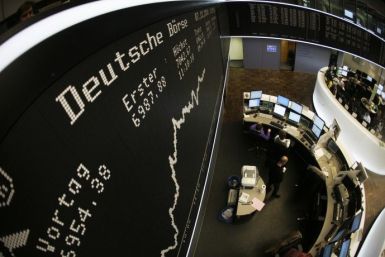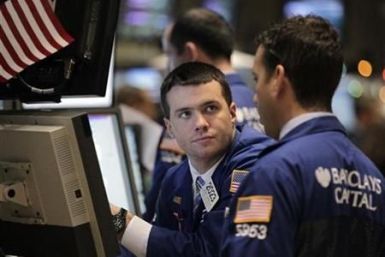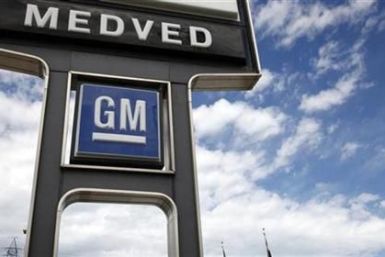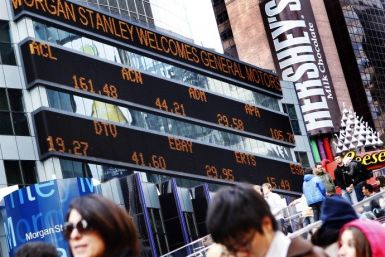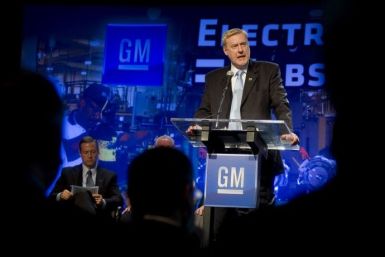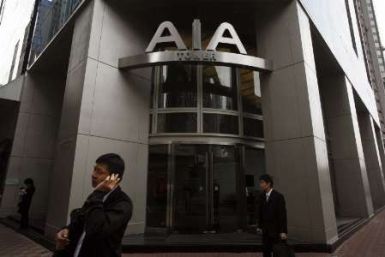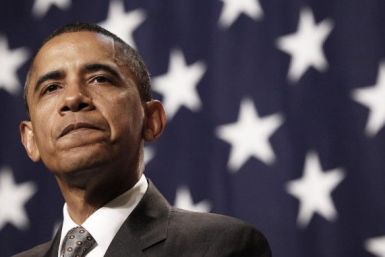European equities will beat 2010 gains by the end of next year, as companies get some help from better earnings and record-low interest rates that will overcome the sovereign debt crisis, Bloomberg said, citing a survey of 13 strategists.
Morgan Stanley is planning to pay out 10 to 25 percent less bonus this year to its employees, owing to volatile market conditions, the Wall Street Journal said, citing a person familiar with the situation.
Two Morgan Stanley economists predict that U.S. 10-year Treasury yields will rise to about 3.75 percent by the end of 2011 because of accelerated economic growth.
Bond insurer MBIA Inc accused Morgan Stanley in a lawsuit of misrepresenting the quality of mortgage backed securities insured for over $223 million.
U.S. stocks advanced in early trade on Tuesday as sentiment was buoyed by President Barack Obama's announcement of an agreement with Republicans on a plan to extend income tax cuts for all Americans.
Search giant Google could witness a rally in its stock price amid its leadership in search advertising market and soaring adoption of its Android operating system in smartphones and tablets.
Wikileaks revealed that Li Keqiang, a senior Chinese politician with many economic-related duties, doubts the country's economic data.
Morgan Stanley Chief Executive James Gorman plans to take on the firm's top-paid bankers and may play hardball with bonus payouts this year, the New York Post said, citing people familiar with the plans.
The Irish bailout package, so far, has not achieved its two main goals. It failed to restore private investors' appetite for Irish government bonds and stop the debt crisis from spreading to other countries. What went wrong?
Economic growth in India will overtake that of China in the next ten years, boosted by huge domestic demand, said noted global economist Nouriel Roubini.
Seagate' announcement that it has ended talks with private equity group over taking the company private is not exactly a surprise, an analyst with ThinkEquity said.
Attachmate Corp, an investment group owned by Francisco Partners, Golden Gate Capital and Thoma Bravo, said it will buy networking solutions company Novell, Inc. for about $2.2 billion.
Shares of automaker General Motors opened at $35 in its first trading day on the NYSE after recovering from a government funded bailout. The opening price was an increase of 2 percent from its IPO price of $33.
GM will begin trading on the New York Stock Exchange beginning today after a landmark intial public offering, from which GM is expected to raise as high as $23.1 billion.
General Motors Co is inching closer towards returning to the U.S. market in one of the biggest IPOs in the U.S. history and could even become the world's largest.
The stage is set for another wave of mergers and acquisitions in the U.S. technology sector as the big players, who are flush with cash and looking to expand their horizon, are acquiring aggressively in quest for new products and technology.
Equity capital market transactions totaled $23.3 billion last week, with 59 deals in the Asia Pacific region in the last week, a report by Dealogic said.
U.S. economic policy is stuck in the pre-1970s era, which had higher population growth. Before 2008, this outdated policy caused boom-and-bust cycles. Now, it is failing to boost economic growth and possibly endangering the world financial system.
A study on charts shows that silver may not continue to enjoy the status of being better investment alternative over gold in the short-to-medium-term period. And not only that, any correction in both the metals will happen with the white metal falling much steeper than its yellow counterpart.
A study on charts shows that silver may not continue to enjoy the status of better investment alternative over gold in the short to medium term period.
QE2 is a rising tide that lifts all boats. The boats, in this case, refers to asset prices. Unfortunately, some asset rallies, particularly those in consumer and industrial commodities, are bad for the real economy,
With our debt coming to maturity in the next ten years, which we cannot afford to pay, printing money seems to be our only option, which we feel is going to spur inflation, if not hyperinflation. We also feel if we adjusted gold for the inflationary highs of the 80's, gold bullion should already be at $2,200 an ounce, so we feel very strongly about a further drive up in gold over the next five years.








